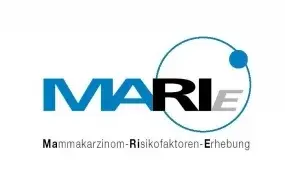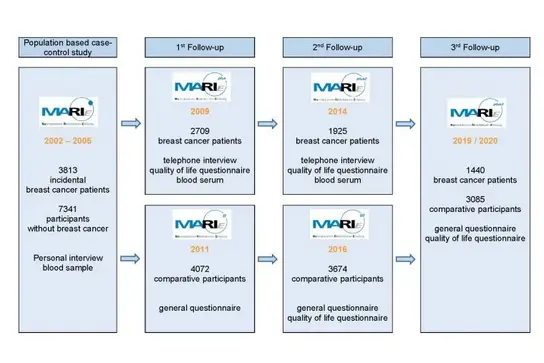MARIE
MARIE and its follow-up studies

Breast cancer risk factor survey
The MARIE study is a population-based case-control study on breast cancer with more than 11,000 women. In the years 2001-2005, histologically confirmed patients with breast cancer or carcinoma in situ (age range 50-74 years) and, as controls, women without breast cancer, matched 1:2 by age and study region, were included. The study took place in the two regions of Hamburg and Rhine-Neckar-Karlsruhe. There were three follow-up studies, the last in 2020 and a mortality follow-up until 2021.
Comprehensive health-related information was collected at each survey. The patients were each asked to provide a blood sample. In addition, treatment data was collected and the recurrence of breast cancer was asked from treating physicians and clinics. The controls provided a blood sample upon recruitment. All blood samples are stored at the DKFZ.

A clinical-epidemiological database of postmenopausal women was created from the data collected from the participants, which offers the possibility of investigating long-term survival as well as cause-specific survival and quality of life over a period of more than 15 years.
Modifiable risk factors (diet, lifestyle, hormone intake) for the development of postmenopausal breast cancer as well as for survival after breast cancer diagnosis were investigated.
The MARIE studies were funded by German Cancer Aid, the DFG, the Hamburg Cancer Society e.V., the Hamburg Foundation for Cancer Control, the Dietmar Hopp Foundation and the Federal Ministry of Education and Research.
In addition, the data are part of large international consortia on breast cancer (BCAC Breast Cancer Association Consortium, B-CAST breast cancer stratification, CONFLUENCE Project), which in addition to classic risk factors also include genome-wide genetic data from several 100,000 cases and controls in order to analyze the individual risk of breast cancer or subtypes or gene-environment interactions.